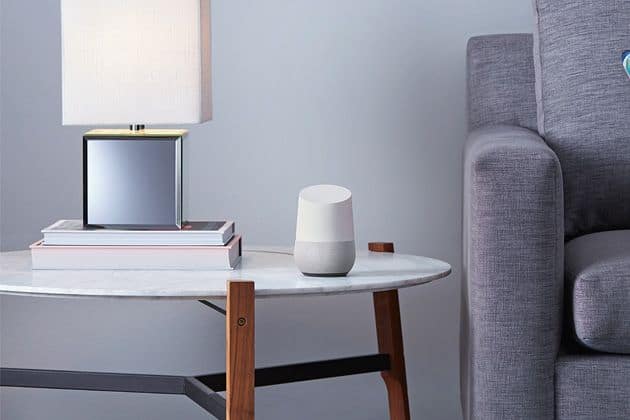Google’s ambitions to make Android Things the Internet of Things (IoT) platform scale back a little. The company will only focus its Android Things on smart speakers and screens for consumers. The focus is therefore much more on consumer appliances than was previously the case.
That’s what Dave Smith, a developer of IoT products at Google, says in a blog post. According to Smith, Google is reassessing its focus and putting more emphasis on consumer products when it comes to the IoT. Support for production systems based on NXP, Qualcomm and MediaTek devices is therefore no longer available. For developers there is also the Android Things developer kit, with which they can experiment.
Shifting focus
Smith argues that Google supports developers and their work in the IoT with its Cloud IoT Core and the upcoming Cloud IoT Edge runtime. By shifting its focus to the Cloud IoT, Google’s activities will be more in line with those of companies like Microsoft with Azure and Amazon with its Web Services.
So far, Googles Android Things has supported many system-on-a modules, including those from NXP, Qualcomm and MediaTek. So that time is now over, and instead Google focuses more on the production of popular devices. At the same time, Android Things remains the platform that developers can experiment with to build their smart devices. This can still be done in combination with hardware from exactly those companies that are now excluded from Android Things.
Android Things has been supporting NXP, Qualcomm and MediaTek from the start. Maybe that’s why the platform initially had a lot of momentum and turned out to be quite popular with developers. But now Google is shifting the focus, which probably makes the platform less popular than expected.
This news article was automatically translated from Dutch to give Techzine.eu a head start. All news articles after September 1, 2019 are written in native English and NOT translated. All our background stories are written in native English as well. For more information read our launch article.